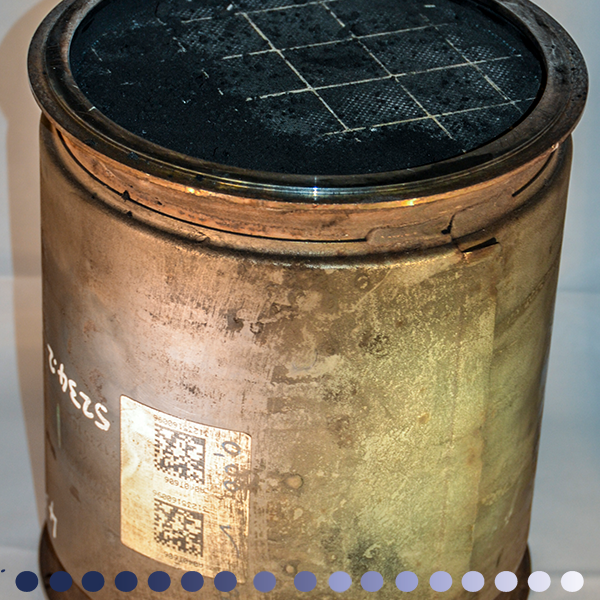As experts in emissions control and commercial vehicle exhausts, Excalibre answer some of the most frequently asked questions about diesel particulate filters (DPF)….
1. What is a diesel particulate filter?
A diesel particulate filter (DPF) is a filter that captures exhaust soot in order to reduce emissions from diesel cars. It does this by trapping solid particles while letting the gases flow out. These filters mean diesel vehicles are able to meet increasingly stringent European emission standards, as well as improving air quality and thereby health standards.
2. Why is the DPF so important?
According to GBR, it is estimated that air pollution causes 29,000 premature deaths in the UK with annual health costs of around £15 billion. This figure could be even higher in 2020 due to the added effects of Coronavirus on the respiratory system.
Chronic exposure to diesel pollutants also contributes to the risk of developing cardiovascular diseases and lung cancer.
The World Health Organisation (WHO) classifies diesel emissions as a class 1 carcinogenic – the same risk category as asbestos. A 2008 report from COMEAP (Committee on the Medical Effects of Air Pollutants) estimated that the average life expectancy reduces by 6 months as a result of airborne particulate matter.
3. Does particulate matter really effect the environment?
Particulate matter consists of nitrates, sulphates, ammonium and black carbon. It causes acidification and eutrophication which are two 2 extremely damaging processes to natural ecosystems. Black carbon is a known contributor to global warming. So particulate matter affects biodiversity and kills the habitat.
Therefore, effective DPFs are essential in reducing PM emissions in order to prevent these processes occurring.
4. Does a DPF need maintenance?
Yes! Over time ash accumulates in the DPF and this needs to be removed to maintain the effective volume of the part and minimise exhaust back pressure. Low load operation can also cause the DPF to become blocked with soot that cannot be removed by the vehicles active regen system.
Therefore, older DPFs either need to be replaced (expensive option) or cleaned.
5. But what is DPF Regeneration?
Regeneration involves burning the soot to gas at a very high temperature, leaving behind only a very small residue (ash). Regeneration, If not carried out properly, can lead to a build-up of soot which affects performance and lead to expensive repair costs. This has led to some diesel vehicle owners removing their DPFs. However, DPF removal has both legal and social implications.
4. Are DPFs checked during MOT Tests
Since 2014 the MOT inspection of the exhaust system includes a check for the presence of a DPF. It is illegal, under the Road vehicles regulations (Regulation 61a(3)), to drive a vehicle which has been modified so it no longer complies with the air pollutant emissions standards it was designed to meet. The potential penalties for failing to comply with Regulation 61a are fines of up to £1,000 for a car or £2,500 for a light goods vehicle.
Since 2018, MOTs include even stricter limits for emissions from diesel vehicles. The changes affect cars, vans, motorcycles and passenger vehicles.
6. So what should I do if I think my DPF needs servicing?
If you have an older diesel vehicle then contact Excalibre Technologies! Our cleaning process includes the FSX cleaning machine which removes both ash and soot.
Each DPF is then flow tested and cell checked. We maintain a database of DPF flow baselines to ensure cleaned units are similar to the flow baselines of brand new DPFs.
For regular updates please follow us on our social media channels.
Stay safe!
About Excalibre Technologies
Founded in 2007 (a year before the introduction of LEZ), Excalibre Technologies was born with the intention of offering high quality commercial vehicle emission control products and services at a competitive price with customer service at the heart of our operation. Since then Excalibre has grown to become a leading supplier of retrofit solutions and DPF cleaning services in the UK.
We work with several national organisations to help achieve their ecological targets of lowering emissions and ensuring their vehicles are maintained to a high standard using internationally recognised practises and equipment supported by OEMs. We can also supply most aftermarket silencers and catalytic converters.
If we can help you with your emission control requirements, please contact Excaibre Technologies on 01594 887414 or sales@excalibretech.com.
Follow us on Facebook, Twitter, Instagram and LinkedIn to stay up-to-date with the latest news about Low emission zones (LEZ) clean air zones (CAZ), ultra low emission zones (ULEZ), Bear funding (the Scottish Bus Emissions Abatement Retrofit programme), refrofit solutions, retrofit funding and DPF cleaning.



